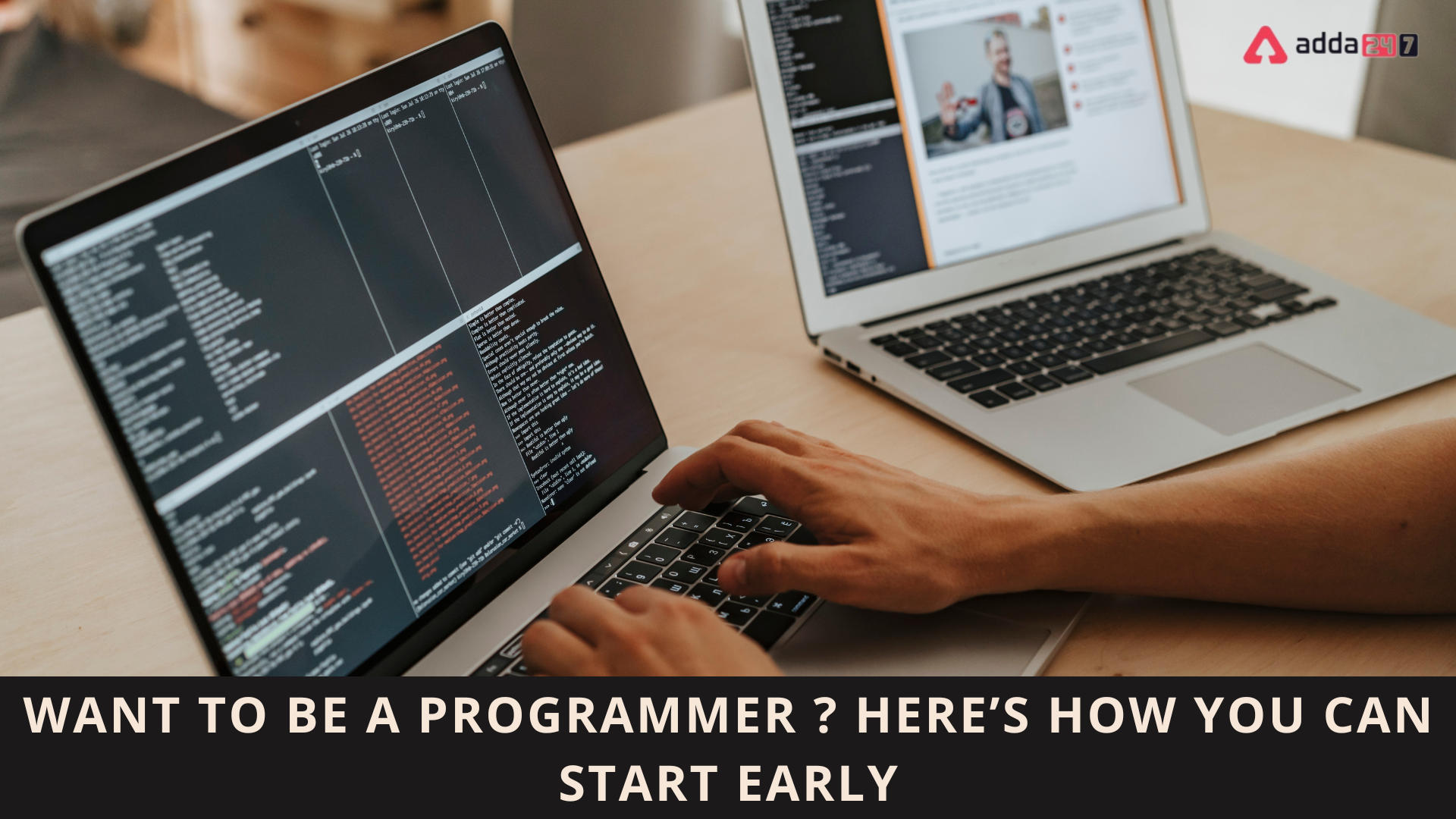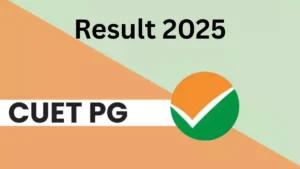Table of Contents
How to Become a Programmer?
How to become a programmer: Are you tired of your present line of work? Are you stuck in a job that has no future? Have you looked at learning Python or another programming language in order to become a programmer? If so, you should read this article!
We’ll examine a range of subjects that are directly relevant to programming, and at the conclusion you ought to be able to respond to inquiries like:
- What does a programmer do with computers ?
- How can I become a programmer ?
We’ll discuss a few of the various sorts of programmers, the key languages you should concentrate on learning depending on the type of programmer you want to be, and the most effective methods for learning these languages.
What Does A Computer Programmer Do?
I want to make sure that you are completely aware of what a computer programmer performs before we look at how to become one. Someone who develops code that instructs a computer or other device what to perform is referred to as a programmer. A software developer, on the other hand, creates the code that instructs the machine how to carry out a notion or design. A web developer, for example, would take a suggested website design and create it by coding the appropriate code. The majority of the time, a computer programmer is constructing or producing something based on another person’s design specifications.
However, some programmers create their own applications, so if you’re an entrepreneurial type, this is always a possibility!
Now that the issue “What does a computer programmer do?” has been addressed, let’s discuss how to learn programming and improve as a programmer.
Ace your preparation level with CLAT 2023 preparation batch.
Want To Be A Programmer: Here’s Step By Step Guide
I won’t lie; learning programming is difficult. But when compared to other abilities and professions, choosing to become a programmer will be one of the simplest decisions you ever make!
- Programmers are employed in a very interesting sector where every day brings fresh difficulties and information.
- Programmers have the option of working for themselves, setting their own schedules, and working from home if they so choose.
- Compared to other abilities that can take three or more years at university to learn, programming is very simple to learn. You could waste a few years of your life studying programming in college, but why would you do that when you can learn it online in a few of months? Excellent courses are available for beginners to try out on platforms like Udemy.
As you can see, there are numerous benefits to becoming a coder. Fortunately for you, I’m here to walk you through how to do it in just seven easy steps.
The fact that there are so many ways to learn programming is, incidentally, one of its best features. You can start on your own with online classes, exercises, and peer support, or you can enrol in an IT degree programme.
How to Become a Programmer Step 1: Understand Why You Want To Start Programming
Why Do You Want To Learn Programming?
Before moving on, you must answer this crucial question for yourself. Do you want to make a profession out of it? Do you intend to carry out your own projects or concepts? Or are you only interested in becoming a coder because it’s now “cool”? Since the language you decide to study will depend on your response to this question, be sincere in your response.
Are You Really Interested In Programming?
Asking this question is crucial. Are you genuinely interested in learning how to programme and finding employment in the industry, or is this merely a passing fad? If you’re serious, you should be able to devote as much time as you can to studying programming techniques so you can get to work right away.
What Kind Of Programming Are You Interested In?
You must carefully consider the type of programming you want to undertake and the industry you want to enter before moving on to Step 2.
Are you interested in working as a back-end web developer? an IT professional? Or are you interested in working on a developing technology, such as artificial intelligence (AI)? Be honest with yourself because the response to this question will influence the learning path you choose. After you have honestly responded to these questions and written down your responses, it is time to go on to step two: deciding what kind of programming you want to do. After that, we will discuss how to become a programmer.
How to Become a Programmer Step 2: Decide What Field You Want To Go Into
There are numerous distinct programming kinds. You need to consider carefully what industry you want to work in while you are working out how to learn programming. Among the most common categories of programmers are:
Web Developers
Front-end (client-side) and back-end (server-side) web developers can be further divided. The code that determines a website’s appearance and how its content is delivered is created by front-end programmers. Web apps and other complex programmes that provide the foundation for a website to run on must be created by back-end programmers.
Software Developers
Software developers are, as you would have guessed, in charge of developing software. They typically write the code to create a workable product using a design or concept that was developed by someone else.
Data Scientists
Data scientists typically work in academia or research, where they nearly exclusively utilise Python to manage and analyse scientific data.
Learning how to programme is the first and most crucial step in becoming a data scientist. These experts frequently hold their own research positions, and they frequently employ code to facilitate their work.
Database Administrator
There are various jobs for database administrators. They are primarily in charge of gathering, organising, and performing analyses on vast amounts of corporate data. Look into what a database administrator does if you enjoy statistics and consumer data research.
Mobile App Development
There are various jobs for database administrators. They are primarily in charge of gathering, organising, and performing analyses on vast amounts of corporate data. Look into what a database administrator does if you enjoy statistics and consumer data research.
Other Roles
Many more chances become available as you learn how to programme. Just a few of the most typical programming occupations are those mentioned above. If none of these seem interesting to you, look into alternative careers and see what else is available.
As technology advances, new job responsibilities and titles are constantly being created, so be sure to keep up with the most recent business news and network with other programmers.
How to Become a Programmer Step 3: Learn a Programming Language (or Three)
You must become familiar with the languages used in the programming field you have chosen. For instance, you will require SQL to work as a database administrator, CSS and JavaScript to work as a front-end web developer, and Java or Swift to begin developing mobile applications. The most well-known programming languages and their applications are listed here. Make sure you do your homework to make sure you are picking the appropriate languages to study for the career you want.
Python
For a modern programmer, learning Python programming is essential.
Python is a fantastic option for anyone who want to work in data science, software development, or pretty much any other programming industry. It is one of the most flexible and widely used programming languages in the world. Python is also employed in various cutting-edge fields of technology, like artificial intelligence and machine learning.
It has never been simpler to learn Python than it is right now. Take an online course to master the fundamentals of Python syntax, how to construct codes, and other valuable information!
CSS/HTML
HTML and CSS are a necessity if you want to go into front-end web programming of any kind. Despite being two different languages, they are virtually always combined to produce interesting, creatively created web pages.
Learn HTML and CSS either in conjunction with the HTML and CSS course or on your own from one of our instructors.
JavaScript
Another flexible and widely used programming language is JavaScript. JavaScript may be a fantastic location to begin your programming education if you’re interested in becoming one. It is employed in robotics as well as interactive front-end web design and back-end web application development.
JavaScript is simple to learn online. You only need to enrol in a course! Take this intermediate JavaScript course if you already know some JavaScript but want to learn it better.
Java
Learn Java if you want to develop your programming skills quickly. As one of the most adaptable languages in the world, Java is right there with Python.
It is a favourite among novices since it is easy to learn and reads like English. It is used for everything from Android mobile app development to back-end web app development, and you can learn it with the Learn Java course.
Swift
Apple has introduced Swift to streamline and simplify the creation of iOS apps. It makes it more simpler for newcomers to create mobile iOS apps than Apple’s standard programming language, C#, does.
Learn Swift if you want to become an iOS app programmer! The course “Learn Swift Programming” is a fantastic starting point.
Solidity
Solidity is the solution if you’re wondering how to learn to programme with blockchain technologies. The least well-known and least used programming language on this list is definitely solidity.
It is applied to the Ethereum blockchain to create smart contracts. We have included Solidity because the growth of cryptocurrencies and blockchain has increased the need for engineers. Take one of our two Solidity-related courses to learn how to write effective code.
Ruby
Ruby, the last language on our list, has gained popularity as a result of its application in full-stack web development.
If you wish to get into web or game programming, Ruby is a versatile language with many use cases that was originally created in Japan for game development. If you’re interested, take a look at the Learn Ruby on Rails course.
How to Become a Programmer Step 4: Practice, Practice & Practice Some More
So you’re interested in learning how to programme, right? I’ll let you in on a little secret, though: practising is a must. You must put in lots of practise!
Yes, practise is the key to becoming a good programmer (surprise, surprise). Starting the moment you begin learning, practise writing code. Create your little applications using a code editor that you can download into your browser.
Share them with others and request code reviews. Every day, try to learn something new, and keep practising until you are entirely fluent in all facets of the language you have chosen.
How to Become a Programmer Step 5: Start Building A Portfolio Of Work
You should start putting together a portfolio while you are practising. Do you want to learn how to programme computers? Well, having a respectable portfolio that you can present potential employers is one of the keys. Remember that there are probably at least a few other candidates for the position of entry-level programmer when you go to apply for a job. You must take an action that distinguishes you from and puts you in front of the pack. The best way to do this is via a portfolio. Save all of the little pieces of code that you write as you learn to programme. Place them someplace. Making your website accessible to potential employers when you’re applying for a job is a terrific idea because you can edit or even construct it utilising your skills of coding.
How to Become a Programmer Step 6: Apply For Jobs
You’re already well on your road to becoming a competent coder.
You have chosen a career in programming, you have begun learning the necessary skills and programming languages, and you have begun writing code in practise. You have created a portfolio that includes all of your work and, hopefully, a fresh résumé.
It’s time to start applying for employment, as you may have already surmised. Look for entry-level programming positions that fit your desired programming specialisation and the languages you have studied.
Send the prospective employers your résumé and any other information they may request, then cross your fingers and wait for a response.
Even if you wait a while before receiving a response to a job application, the act of applying itself is beneficial training. Learning how to sell your talents to employers is a key component of how to become a programmer.
In the same manner, don’t anticipate getting a job after just one interview. If you’ve never conducted a significant job interview before, you’ll probably feel anxious and risk making blunders.
Think of your initial interviews as practise. You’ll eventually receive an offer for your first job as a professional coder if you keep applying!
Consider working as a freelancer in the interim to maintain your skills and prevent rust from setting in with your coding abilities.
How to Become a Programmer Step 7: Never Stop Learning!
As you may expect, the field of programming is expanding quickly. It’s unlikely that learning to programme now will equip you with the abilities you’ll need to continue to be an effective programmer in the coming years. You must continue to pick up new knowledge, including new languages. I think trying to learn something new every day is a wonderful habit. This could be a novel bit of syntax, a brand-new tool you can use with your preferred language, or a novel approach to programming. It makes no difference as long as you keep learning.
Get you CUET preparation done with Adda247 online classes new CUET 2023 batch.
How to Become a Programmer: Tasks And Duties
- Using computer software and hardware to write and modify programming code.
- Modifying and documenting the program code to correct errors.
- Testing code for bugs and implementing improvements and fixes.
- Solving problems using logic and methodical testing processes.
- Developing testing and validation processes.
- Deploying code to the live environment.
- Writing and maintaining up-to-date technical programs, end user documentation and operational procedures.
How to Become a Programmer: Eligibility
Candidates who meet the requirements set forth by the organisations are eligible to apply for positions as computer programmers.
academic prerequisites
- Must have received at least a 65% on their 10+2 exam from a recognised board.
- Should have received a minimum grade of 65% for a bachelor’s degree in computer science or IT from any reputable university or institution.
- Understanding of programming languages like Python, Java, etc.
- Any programming language certificate course should be completed.
- Skills in Communication
- Teamwork
- Ought to have finished an internship in programming.
Age Restrictions: Apply while applying for the position of computer programmer. To apply for a position as a computer programmer, you must be at least 20 years old.
Join the Adda247 Saksham batch by clicking on this link.
How to Become a Programmer: Entrance Exams
Candidates must register for entrance tests like the EAMCET, JEE Mains, JEE Advanced, etc. in order to enrol in the bachelor’s programme. You can apply to colleges that offer computer science courses if you receive high grades on the admission tests.
UG Level Entrance Exams
- EAMCET
- JEE Mains
- JEE Advanced
- VITEEE
- SRMJEEE
- BITSAT
- MHTCET
PG Level Entrance Exams
- GATE
How to Become a Programmer: Courses For Becoming A Computer Programmer
UG Courses
- B.Tech in Computer Science
- B.Sc Computer Applications – Bachelor of Science in Computer Applications
- B.Sc Computer Maintenance & Electronics
- B.Sc Computer Science Statistics
- B.Sc (Hons.) Computer Science
- B.Sc (Hons.) Mathematics and Computer Science
- B.Sc (Mathematics, Computer, Statistics)
- B.Sc + M.Sc (Bachelors and Masters in Computer Science)
PG Courses
- M. Tech in Computer Science
- Master of Technology in Computer and Information Science
- Master of Philosophy in Computer Science
- Master of Science in Applied Mathematics with Oceanology and Computer
- Master of Science in Computer Communication
- Master of Science Honours in Computer Science
- Master of Science in Computer Science
- M.Sc (Operation Research & Computer Applications)
- Master of Science in Statistics and Computer Applications
- Master of Science and Technology in Industrial Mathematics with Computer
Diploma Courses
- Post Graduate Diploma in Applied Computer Science
- Diploma in Advanced Computing (DAC)
- Post Graduate Diploma in Computer Hardware
- Advanced Diploma in Software Development
- Post Graduate Diploma in Computer Aided Interior Space
Doctorate Course
- Doctor of Philosophy in Computer Science
- Doctor of Philosophy in Computer Science and Applications
How to Become a Programmer: Course Duration
The duration and fee structure of all the bachelor, master, and Ph.D. courses are given in the below table.
| Name of the course | Duration | Fee Structure per annum |
| Diploma | 1 year | Differs from college to college |
| Bachelor’s | 3 years | Rs. 10,000 to 1 lakh |
| Master’s | 2 years | Rs. 30,000 to 1 lakh |
| Doctorate | 3 years | Rs. 1 lakh to 2 lakhs |
Related Post:
- Best PCMB Career Options After 12th Except for Medical
- How To Become A Pilot In India?- After 12th & Graduation
- STEM Careers In Oceanography
- Careers In Space: How To Become An Astronaut?
- Career In Veterinary Science: How To Become A Veterinary Doctor?
- Career In Mathematics: What Can You Do With A Maths Degree?
- How To Become A Mechanical Engineer?
How to Become a Programmer: FAQs
Question 1 Can a 13-year-old be a programmer?
Ans. Bakshi, who at the age of 12 became IBM Watson’s youngest coder, even found a problem in the programme. Bakshi continues to engage with mentors at IBM, and the firm has since invited him to lead a main-stage session at its annual conference. The 13-year-old is now a teacher and an author.
Question 2 Do programmers need a degree?
Ans. Even while the majority of businesses demand a bachelor’s degree, some will recruit qualified candidates with an associate’s or certificate.
Question 3 How long does it take to learn programming?
Ans. About three to six months
Question 4 Can I get a job if I only know Python?
Ans.Yes you can get a job with only Python



 CUET UG 2025: A Winning Strategy for the...
CUET UG 2025: A Winning Strategy for the...
 UP, MP, CBSE Board Result 2025 Live Upda...
UP, MP, CBSE Board Result 2025 Live Upda...
 [Live Update] CUET PG Result 2025 @exams...
[Live Update] CUET PG Result 2025 @exams...










